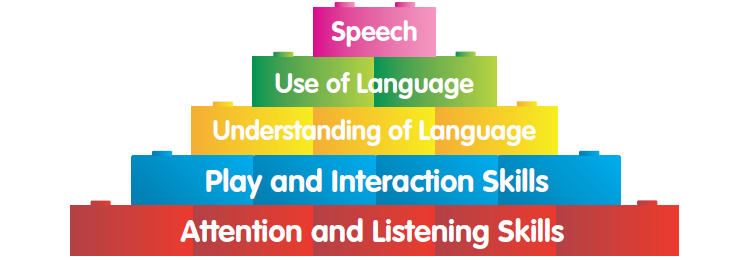Education
Rader Principal Ruhl School Kansas City: Inspiring Academic Excellence

The Rader Principal Ruhl School in Kansas City has long stood as a beacon of learning, innovation, and community leadership. As one of the most recognized institutions in the region, this school not only exemplifies academic rigor but also fosters a deep sense of belonging and purpose among its students, staff, and the broader community. This article dives into the school’s history, core values, educational programs, and the driving leadership that makes it unique.
A Glimpse into the History of Rader Principal Ruhl School
Every great institution has its roots in a compelling origin story, and the Rader Principal Ruhl School is no exception. Established decades ago in the heart of Kansas City, this school was created to serve the needs of a growing, diverse population that sought quality education. From its humble beginnings, the school has grown into a model of academic excellence, providing a safe and nurturing environment for thousands of students over the years.
Rader Principal Ruhl School was named in honor of its visionary leaders who believed in the transformative power of education. With a mission to equip students with the knowledge, skills, and values necessary to thrive in an ever-changing world, the school continues to honor its legacy while adapting to the challenges of the modern era.
The Vision and Values That Define the Institution
At the heart of Rader Principal Ruhl School lies a steadfast commitment to student success. The school’s motto, “Learning Today for a Better Tomorrow,” underscores its dedication to preparing students for future challenges. Central to its mission are the following core values:
- Inclusivity and Diversity: The school celebrates the rich cultural tapestry of Kansas City, ensuring that every student feels valued and respected.
- Academic Excellence: High expectations are set for both students and teachers, fostering a culture of hard work and achievement.
- Community Engagement: The school actively partners with parents, local businesses, and organizations to enrich the educational experience.
- Leadership Development: Students are encouraged to develop leadership skills, both in and out of the classroom, to become responsible citizens.
These values are woven into the fabric of everyday life at Rader Principal Ruhl School, creating an environment where students can thrive.
Leadership at Rader Principal Ruhl School
Leadership plays a pivotal role in the success of any educational institution, and the administration at Rader Principal Ruhl School is no exception. The principal, Mr./Ms. [Insert Name of Principal, if applicable], has been instrumental in fostering an environment of collaboration, innovation, and accountability. Known for their open-door policy and hands-on approach, the principal works closely with teachers, students, and parents to ensure that every voice is heard and every need is met.
The school’s leadership team places a strong emphasis on professional development for staff, encouraging innovative teaching practices and the use of technology to enhance learning. By prioritizing both student and teacher growth, the administration ensures that the school remains a leader in education.
Educational Programs and Curriculum
Rader Principal Ruhl School offers a robust and well-rounded curriculum designed to meet the diverse needs of its students. From foundational subjects like mathematics, science, and language arts to specialized programs in the arts and technology, the school provides a comprehensive education that prepares students for college, careers, and beyond.
- STEM Initiatives: The school boasts state-of-the-art facilities and programs focused on Science, Technology, Engineering, and Mathematics (STEM). Students have access to hands-on learning experiences that inspire creativity and problem-solving.
- Arts and Culture: With a strong commitment to the arts, the school offers music, drama, and visual arts programs that nurture creativity and self-expression.
- Sports and Physical Education: Athletics play an integral role in the school’s culture, promoting teamwork, discipline, and physical well-being.
- Special Education Services: Dedicated to inclusivity, the school provides tailored support for students with special needs, ensuring that every child has the opportunity to succeed.
These programs reflect the school’s dedication to providing a holistic education that addresses the academic, emotional, and social needs of its students.
Student Life and Extracurricular Activities
Life at Rader Principal Ruhl School extends far beyond the classroom. The school offers a wide range of extracurricular activities that allow students to explore their interests, develop new skills, and build lasting friendships.
- Clubs and Organizations: From robotics and debate to environmental advocacy and cultural clubs, there’s something for everyone.
- Leadership Opportunities: Programs like student council and peer mentoring give students a chance to develop leadership skills and make a positive impact on their peers.
- Community Service: Students are encouraged to participate in community service projects, fostering a sense of responsibility and compassion.
- Annual Events: Events such as science fairs, talent shows, and sports tournaments create a vibrant and engaging school community.
These activities play a crucial role in shaping well-rounded individuals who are prepared to succeed in all aspects of life.
The Role of Community in the School’s Success
The success of Rader Principal Ruhl School would not be possible without the unwavering support of the Kansas City community. Parents, local businesses, and organizations collaborate with the school to provide resources, mentorship, and opportunities for students. Regular community events, such as open houses and parent-teacher conferences, strengthen the bond between the school and its stakeholders.
Additionally, the school actively participates in local initiatives, further cementing its role as a cornerstone of the community. This symbiotic relationship ensures that the school remains a thriving institution that benefits everyone involved.
FAQs
What makes Rader Principal Ruhl School unique?
The school’s commitment to academic excellence, inclusivity, and community engagement sets it apart. Its comprehensive programs and leadership-focused approach ensure student success.
How does the school support diversity?
Rader Principal Ruhl School celebrates diversity by fostering an inclusive environment where all students feel valued and respected.
Are there opportunities for parental involvement?
Absolutely. The school encourages parental involvement through volunteer programs, parent-teacher conferences, and community events.
What extracurricular activities are offered?
The school provides a wide range of activities, including sports, arts, clubs, and leadership programs, catering to diverse student interests.
How does the school prepare students for the future?
By offering a robust curriculum, STEM initiatives, and leadership opportunities, the school equips students with the skills and knowledge needed for success in college and beyond.
What role does the principal play in the school’s success?
The principal’s leadership is key to the school’s success, fostering a culture of innovation, collaboration, and accountability.
Conclusion
Rader Principal Ruhl School in Kansas City is more than just an educational institution—it’s a community-driven powerhouse of academic excellence and personal growth. By fostering a nurturing environment, offering a well-rounded curriculum, and emphasizing leadership, the school prepares students to excel in all aspects of life. Its enduring legacy and commitment to innovation make it a true gem in the Kansas City education landscape.
Whether you’re a prospective parent, student, or community member, Rader Principal Ruhl School represents an opportunity to be part of something truly special.
Education
Empowering Parents: Tools and Resources for High School Students with Autism

Parenting a high school student with Autism Spectrum Disorder (ASD) presents a unique set of challenges and rewards. As children on the spectrum transition into their teenage years, parents and caregivers often find themselves seeking out the best resources and tools to support their child’s development and learning. From understanding the intricacies of ASD to communicating effectively with educators and preparing for life after high school, there’s much to consider. Keep reading to discover key strategies and resources that can empower parents as they guide their high schoolers toward success.
Understanding Autism Spectrum Disorder in High School Students
Teenage years bring significant changes, and for students with Autism Spectrum Disorder (ASD), these changes can present unique challenges, especially in high school where academic pressures and social environments become more complex. Recognizing signs of stress and anxiety, such as behavioral changes and difficulty with transitions, is crucial for parents. Each individual with ASD has unique strengths and challenges, and tailored support is essential for their success.
Resources like 360 Behavioral Horizons provide strategies and support for parents navigating the complexities of ASD, emphasizing the importance of early identification and intervention. Additionally, engaging with local support groups and exploring opportunities such as scholarships for high school juniors can greatly assist in easing the high school journey for students with autism.
Strategies for Effective Communication Between Parents and Educators
Effective communication between parents and educators is vital for supporting students with ASD. Parents, as the primary advocates for their children, can share crucial insights about their child’s needs, preferences, and successful strategies. Developing an Individualized Education Program (IEP) helps in setting specific goals and accommodations, with regular meetings ensuring everyone works towards common objectives.
Collaboration on tools like visual schedules, social narratives, and tailored communication devices enhances the student’s progress. When parents and teachers coordinate on strategies, the consistency benefits the student’s academic and social development. A positive relationship with school staff connects parents to their child’s educational experience and supports their overall wellbeing.
Navigating Social Challenges: Resources for Teenagers with Autism
Navigating high school can be particularly challenging for teens with ASD due to complex social dynamics, sensory inputs, and nonverbal cues. However, with the right support, they can develop social skills through structured programs like peer interactions, role-playing, and social stories. Parents can also aid by practicing social situations at home.
Extracurricular activities that match the teen’s interests can help them learn socially and connect with peers, while also respecting their need for downtime. Resources like ASD-focused summer camps and social groups offer safe spaces for forming friendships with peers facing similar challenges.
Academic Accommodations and Supports in High School

Academic accommodations are crucial for high school students with autism, helping to tailor the learning environment to their unique needs without compromising educational standards. Common supports include extra test time, quiet workspaces, and learning technology. Special education services through IEPs or 504 plans offer customized strategies, making it essential for parents to understand and advocate for their child’s rights.
Teachers and special education professionals can use visual aids and task breakdowns to accommodate different learning styles typical among students on the spectrum. Scholarships for high school juniors can provide financial relief and support during the transition to college, making the journey smoother for students with autism.
Transition Planning for Postsecondary Education and Employment
Transitioning from high school to postsecondary education or the workforce can be daunting for students with ASD and their families. Early planning is crucial for exploring options, building skills, and setting goals. Colleges often offer specialized support like mentorships and counseling, so researching these resources early can help find a suitable institution.
For those entering the workforce, internships and vocational training are invaluable for gaining hands-on experience and confidence. Building a support network with educators, therapists, and career counselors is essential for navigating this new stage and maximizing potential.
Overall, empowering parents with knowledge and resources is key to supporting high school students with autism. By providing tailored educational accommodations, fostering effective communication with educators, and preparing for life after high school, we can create environments in which these young individuals can thrive. Collaborative efforts from the entire community can make a substantial impact on the lives of these students and pave the way for their future triumphs.
Education
Building Blocks of Communication: Nurturing Language in Kids

Language is not just a tool for communication; it’s the cornerstone of human interaction, cognition, and culture. For children, the acquisition of language is a remarkable journey that shapes their understanding of the world and their ability to express themselves. As parents and caregivers, understanding the nuances of language development and actively nurturing it can significantly impact a child’s future success. In this article, we’ll explore the building blocks of communication and how to foster language development in kids.
1. Early Foundations:
Language development begins long before a child utters their first word. Even in infancy, babies absorb language by listening to the sounds around them and observing facial expressions. As parents, you play a crucial role in laying the groundwork for language acquisition by talking, singing, and reading to your child from the earliest days. These interactions not only expose them to the rhythm and cadence of language but also strengthen the bond between parent and child.
2. The Power of Conversation:
As children grow, engaging them in meaningful conversations becomes increasingly important. Encourage your child to express themselves, even if their words are limited at first. Ask open-ended questions, listen attentively, and respond with enthusiasm to their attempts at communication. These interactions not only expand their vocabulary but also teach them the rules of conversation, such as taking turns and staying on topic.
3. Reading as a Gateway:
Few activities have as profound an impact on language development as reading. Make storytelling a regular part of your child’s routine, whether it’s a bedtime story or a trip to the library. Choose books with colorful illustrations and engaging narratives that capture their imagination. As you read together, pause to ask questions, make predictions, and encourage your child to retell the story in their own words. Not only does this foster a love of reading, but it also enhances comprehension and language skills.
4. Creating a Language-Rich Environment:
Encouraging your child’s language development involves immersing them in environments abundant with language, both within the home and throughout the community. Label items around your house, discuss daily routines and introduce them to diverse experiences. Utilize everyday activities like cooking, gardening, or leisurely walks as opportunities for language learning.
Furthermore, contemplate enrolling your child in programs such as music classes or playgroups, which can offer peer interaction and engaging, language-focused play. For parents in Taylorsville, considering daycare options can also provide an enriching environment where language skills can flourish alongside social interaction and structured learning activities.
5. Embracing Diversity:
Exposure to a variety of languages and cultures enriches a child’s linguistic repertoire and fosters cultural competence. If possible, expose your child to different languages through music, books, or interactions with multilingual friends and family members. Even if you’re only fluent in one language, you can still celebrate diversity by exploring books and media from different cultures and teaching your child to respect and appreciate linguistic differences.
6. Technology as a Tool:
While face-to-face interaction is paramount, technology can also be a valuable tool for language learning when used mindfully. There are countless educational apps, games, and videos designed to support language development in children. However, it’s essential to choose age-appropriate, high-quality content and limit screen time to ensure that technology complements, rather than replaces, real-world interactions.
7. Patience and Persistence:
Every child develops at their own pace, and language development is no exception. Some children may start speaking in full sentences early on, while others may take longer to find their voice. Be patient and supportive, celebrating each milestone along the way. If you have concerns about your child’s language development, don’t hesitate to consult with a pediatrician or speech-language pathologist for guidance and support.
Conclusion
Nurturing language development in children is a multifaceted process that requires patience, creativity, and intentionality. By creating a language-rich environment, engaging in meaningful conversations, and fostering a love of reading, you can lay a solid foundation for your child’s future success. Remember that language is not just about words; it’s about connection, understanding, and expression. By investing in your child’s language development, you’re giving them the tools they need to navigate the world with confidence and clarity.
Education
LiteroticaTags: The Ultimate Guide to Enhancing Your Reading and Writing Experience

Introduction to LiteroticaTags
LiteroticaTags, a haven for erotic literature enthusiasts, thrives on the seamless connection between writers and readers. At the heart of this connection lies an often-overlooked tool: LiteroticaTags. These small but mighty labels can transform the way stories are discovered and enjoyed. But what exactly are LiteroticaTags, and why are they so crucial?
Understanding LiteroticaTags
What are LiteroticaTags?
LiteroticaTags are keywords or phrases attached to stories to describe their content. Think of them as the signposts guiding readers through the vast landscape of erotic literature, helping them find exactly what they’re looking for.
The Role of Tags in Organizing Content
In the vast and diverse world of Literotica, tags serve as a crucial organizational tool. They categorize stories based on various elements, making it easier for readers to find stories that match their interests and for authors to reach their target audience.
Types of LiteroticaTags
Genre Tags
These tags denote the genre of the story, such as romance, fantasy, science fiction, or historical. They help readers filter stories based on their preferred genre.
Theme Tags
Theme tags highlight specific themes within a story, such as BDSM, taboo, or romance. These tags give readers a clearer idea of the story’s focus.
Content Warning Tags
Content warning tags alert readers to potentially sensitive content. Tags like “non-consensual,” “incest,” or “age gap” provide necessary warnings, ensuring readers are prepared for the content they will encounter.
Character Tags
These tags describe the characters involved, such as “male/female,” “female/female,” or “multiple partners.” They help readers find stories with their favorite character dynamics.
Relationship Tags
Relationship tags focus on the type of relationship in the story, such as “friends to lovers,” “enemies to lovers,” or “forbidden love.” These tags cater to readers who are drawn to specific relationship arcs.
Benefits of Using LiteroticaTags
Enhanced Discoverability
Tags make stories more discoverable by appearing in search results and tag-based browsing. This increased visibility can lead to more reads and a broader audience for authors.
Improved Reader Experience
For readers, tags offer a tailored reading experience. They can quickly find stories that match their tastes, saving time and enhancing their enjoyment.
Author Benefits
Authors benefit from tags by attracting the right readers. Proper tagging can lead to better engagement, positive feedback, and a loyal reader base.
How to Use LiteroticaTags Effectively
Researching Popular Tags
Before tagging a story, it’s beneficial to research popular tags within the Literotica community. This helps in identifying what readers are searching for and ensures your story reaches a larger audience.
Balancing Specificity and Broad Appeal
While it’s important to be specific, overly niche tags can limit your audience. Striking a balance between broad and specific tags will maximize your story’s reach.
Updating Tags Over Time
As your story evolves, so should your tags. Regularly updating tags to reflect new themes or trends keeps your story relevant and accessible.
Common Mistakes with LiteroticaTags
Over-tagging
Using too many tags can overwhelm readers and dilute the story’s focus. Stick to the most relevant tags to maintain clarity.
Using Irrelevant Tags
Tags should accurately reflect the story’s content. Misleading tags can lead to reader dissatisfaction and negative feedback.
Ignoring Reader Feedback
Readers often provide valuable insights through comments and feedback. Ignoring their suggestions for tags can be a missed opportunity for better engagement.
Best Practices for Authors
Engaging with Readers through Tags
Encourage readers to suggest tags that they feel best represent the story. This not only engages your audience but also helps in refining your tagging strategy.
Keeping Tags Consistent
Consistency in tagging across your stories helps build a recognizable brand. Readers will know what to expect from your work, enhancing their overall experience.
Utilizing Reader Suggestions
Consider incorporating reader suggestions into your tags. This collaborative approach can lead to more accurate and appealing tags.
The Future of LiteroticaTags
Emerging Trends
As the landscape of erotic literature evolves, so do tagging trends. Staying abreast of these changes ensures your stories remain relevant and discoverable.
Technological Advancements
Advancements in technology, such as AI and machine learning, are transforming how tags are generated and used. These tools can help in creating more precise and effective tags.
Community Influence
The Literotica community plays a significant role in shaping tagging norms. Participating in community discussions can provide valuable insights into effective tagging practices.
Case Studies: Successful Use of LiteroticaTags
Popular Stories and Their Tags
Examining popular stories and their tags can provide practical examples of effective tagging. Analyzing what works can help you refine your own tagging strategy.
Lessons Learned from Successful Authors
Learning from successful authors who have mastered the art of tagging can provide actionable tips and inspiration for your own work.
Frequently Asked Questions about LiteroticaTags
What if I don’t use tags?
Without tags, your story might struggle to reach its intended audience. Tags are essential for visibility and discoverability.
Can tags affect my story’s popularity?
Absolutely. Well-chosen tags can significantly boost your story’s readership by making it easier to find for those interested in its themes and genres.
How often should I update my tags?
It’s a good practice to review and update your tags periodically, especially if there are significant changes in the story or emerging trends in the community.
Are there any tags I should avoid?
Avoid misleading or irrelevant tags. They can frustrate readers and harm your credibility as an author.
How can I find the best tags for my story?
Researching popular tags, engaging with your readers, and analyzing successful stories can help you identify the best tags for your story.
Conclusion
LiteroticaTags are a powerful tool for both authors and readers, enhancing discoverability, engagement, and overall enjoyment of erotic literature. By understanding and utilizing these tags effectively, you can significantly improve your reading and writing experience. Happy tagging!
-

 News2 years ago
News2 years agoVaping: Beyond the Hype – Unveiling the Risks and Realities
-

 Fashion2 years ago
Fashion2 years agoWhat is λιβαισ? A Complete Guide
-

 Entertainment2 years ago
Entertainment2 years agoUnleashing Geekdom: Exploring the Wonders of Geekzilla Radio
-

 Games2 years ago
Games2 years agoHow to Download Games From ApunKaGames: A Comprehensive Guide
-

 Fashion6 months ago
Fashion6 months agothesparkshop.in/bear-design-long-sleeve-baby-jumpsuit
-

 Life style2 years ago
Life style2 years agoDemystifying λυσασ: Unveiling the Enigmatic Concept
-

 News6 months ago
News6 months agoUnlocking the Magic of Gemstones: A Comprehensive Guide
-

 Fashion6 months ago
Fashion6 months agoThesparkshop.In Clothing Men
